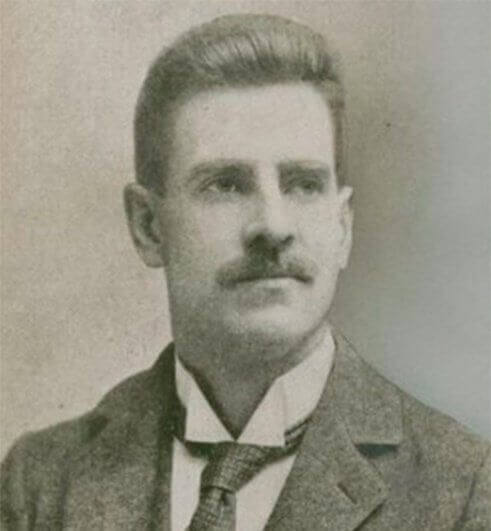One might envision that softball was started on a dusty diamond by a bunch of retired baseball stars looking to enjoy the national pastime but at a slower pace. Well, you’ll be comforted to know that…it didn’t start that way at all. In this article, the Bat Experts at JustBats outline the who, what, where, when, and why of the invention of softball.
What Is The Origin Of Softball?
The origins of softball trace themselves back to a group of men huddled together in Chicago, Illinois on Thanksgiving Day, 1887. They traded a hot and dusty diamond for the recently opened confines of the Farragut Boat Club. To make this scene even less conducive to a softball origin story, these men were all eagerly awaiting word of the final score of the Harvard-Yale football game being held that day. Yale was victorious by a score of 17-8 and the story goes that a Yale supporter grabbed a boxing glove that was lying nearby and tossed it at one of the Harvard enthusiasts. This Harvard supporter must have had some fast reflexes as they say that he picked up a stick and batted the boxing glove away. The men must have been terribly excited by this sequence of events because it is believed that right on the spot, at the urging of a reporter named George Hancock, the men played a modified game of baseball within the boat club with a final score of 41-40. The victor of the game seems to have been lost to history.

(George Hancock - The man often credited with inventing softball)
Shortly after the Thanksgiving day ballgame, George Hancock established the rules for this new game with one of the big separators from baseball being the larger size of ball (16 inches in circumference). The game was created under the monikers “Indoor Baseball” or “Indoor-Outdoor”. The game’s original intent was to provide an avenue for baseball players to sharpen their skills within the comforts of the indoors during the cold of winter. Within a year, the game started being played outdoors as well. Players were picking it up, enjoying it and slowly spreading it across the Midwest.
In Minneapolis, Minnesota a fire lieutenant by the name of Lewis Rober was also championing a similar game to what George Hancock had contrived. Some even believe that Mr. Rober had created his version of softball a few years before Hancock. Lewis Rober used this game as a way to keep his firemen in shape during their downtime and it really began to gain popularity in the mid-1890s. The rules created by Rober varied a little bit from Hancock’s rules (most notably, Rober was using a slightly smaller ball than Hancock’s Farragut Club), but the games were extremely similar. The best part of the Minnesota game was its eventual name…Kitten Ball. As it was named after one of the teams Mr. Rober organized.

(Lewis Rober - Possibly championed a game similar to Hancock's a few years earlier)
During the next 30-40 years, the game continued to grow, but in a little bit of a funny way. The game was spreading geographically, but it appeared that in each place it took root, slightly new rules would be made.
Things started to iron out as the late 1920s arrived. The game had made it to Denver, CO and a man named Walter Hackanson decided to give the game the name of “softball”. And as we all know, that name eventually stuck.
But 1933 brought forth the most important development for softball. Leo Fischer (Chicago American Newspaper Sports Editor) and MJ Pauley (Sporting Goods Salesman) invited a large number of teams to Chicago for a softball tournament that coincided with the 1933 Chicago World’s Fair (the tournament was actually held in 1934 as the fair spanned longer than the 1933 year). The tournament featured a fastpitch division, a slow pitch division and a women’s division. The pitching in this tournament was reported to be done underhand (unfortunately, this writer could not find a date before the 1933 World’s Fair when softball pitchers began to toss the ball underhand).

(Image of a softball game being played at the Chicago World's Fair)
In preparation for the World’s Fair tournament, the formation of a softball governing body came about. This organization was established as the Amateur Softball Association (ASA). With this governing body, the game of softball could now grow nationwide with consistent rules for all to follow.
After the fair, softball continued to grow. And as it grew, it began to take on a reputation as a recreational and community-type activity that made it very inclusive for women participants (as opposed to its brother sport, baseball, which was considered a rough and gruff game in the early 20th century).
While slow pitch softball thrived as a recreational opportunity for both men and women during the second half of the 20th century, men started diverting away from fastpitch softball. In the 50s and 60s, there was no professional fastpitch league for men and no Olympic team either. This is believed to have started to prevent men from participating heavily in fastpitch. It could have been possible that fastpitch died out entirely due to the declining male participation. However, in 1972, Title IX was passed and fastpitch softball was added to college sports programs as the baseball equivalent for women. Today, fastpitch is riding a wave of popularity, especially at the collegiate level, as its World Series has become a prime-time event broadcasted by ESPN. And even more excitement is building as ladies fastpitch softball is planning to be added back into the list of events for the 2020 Olympics.
Today we see slow pitch and fastpitch softball being played commonly throughout the world with millions of participants. There are at least 6 organizations that help govern softball with the 2 largest being USA Softball (formerly known as ASA) and USSSA (United States Special Sports Association). This writer highly doubts that George Hancock could have envisioned that the game he helped organize on Thanksgiving Day 1887 would have grown into what it is today.
Remember, if you ever have any softball bat related questions, give our friendly Bat Experts a call at (866-321-2287). You may also shoot them an email at experts@justbats.com or click here to live chat. Don't forget, we're here for you from click to hit!




